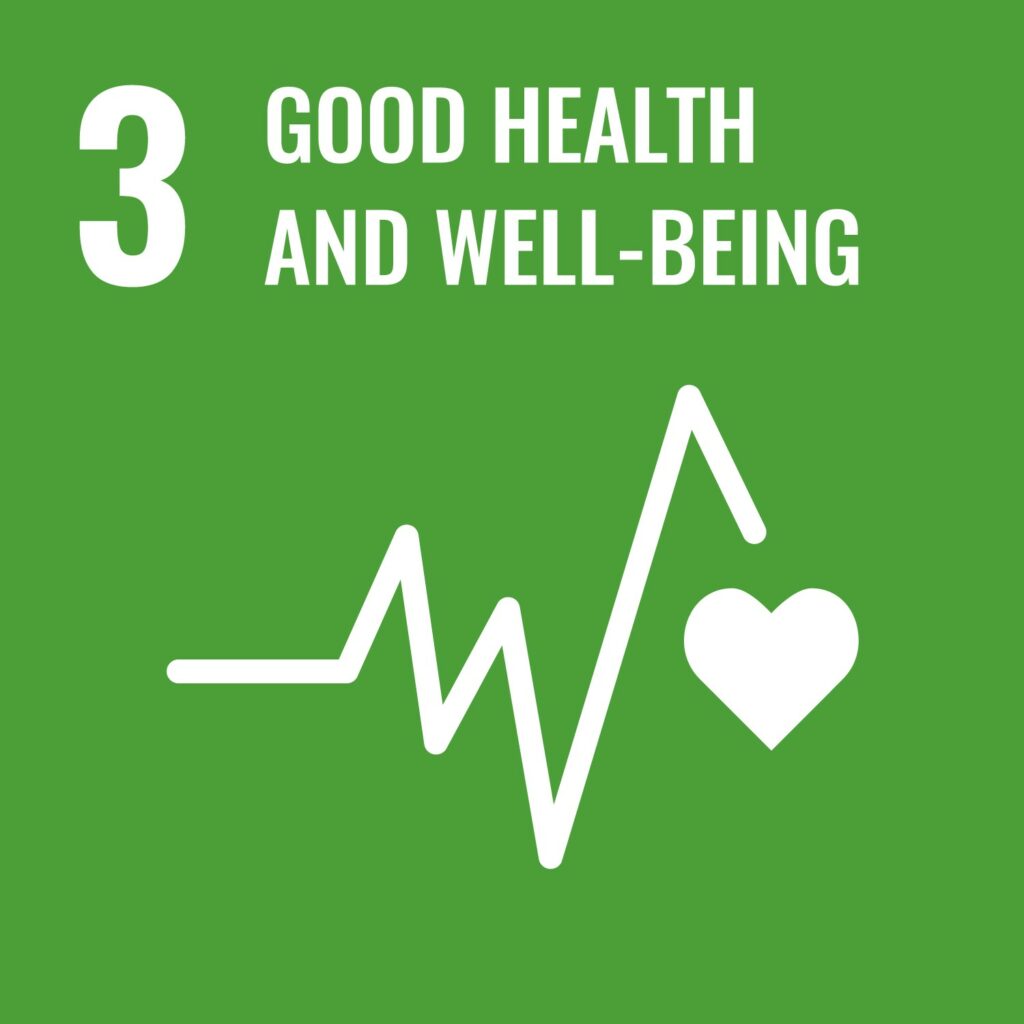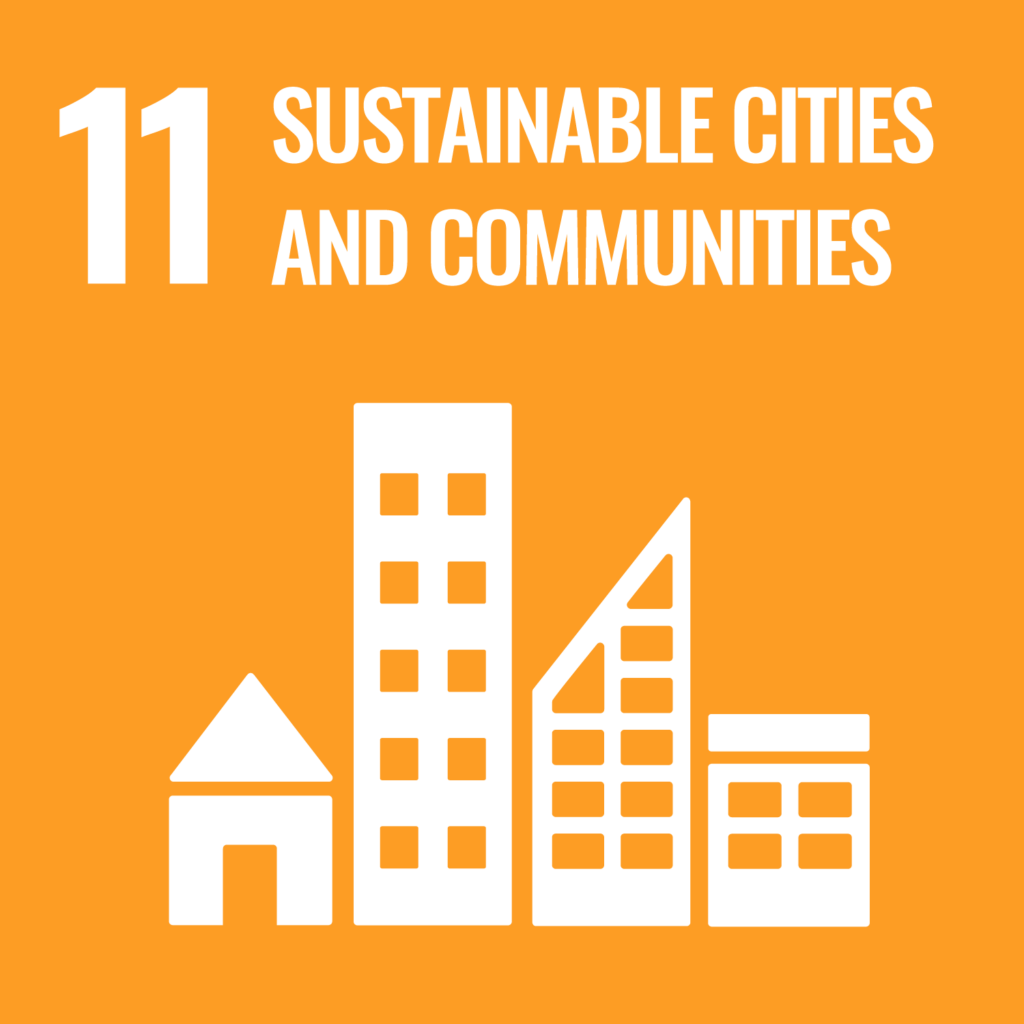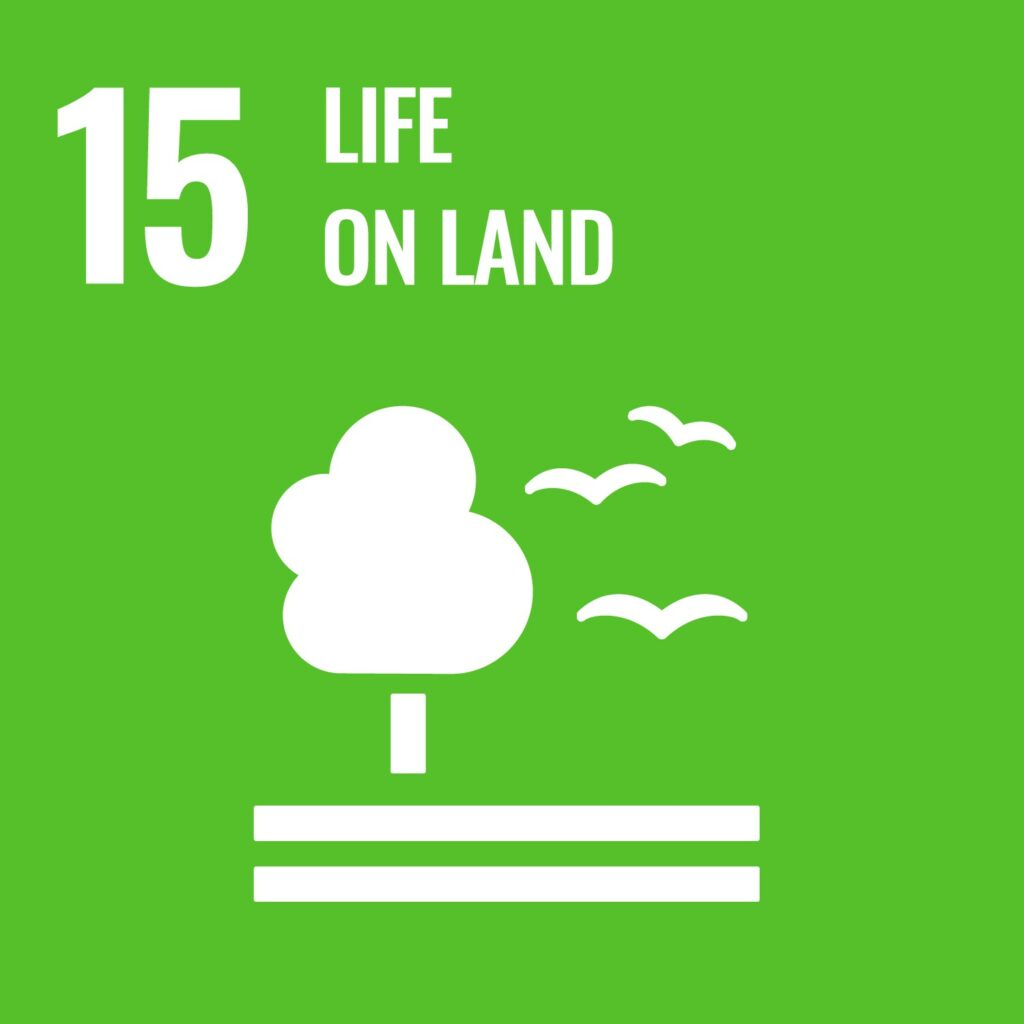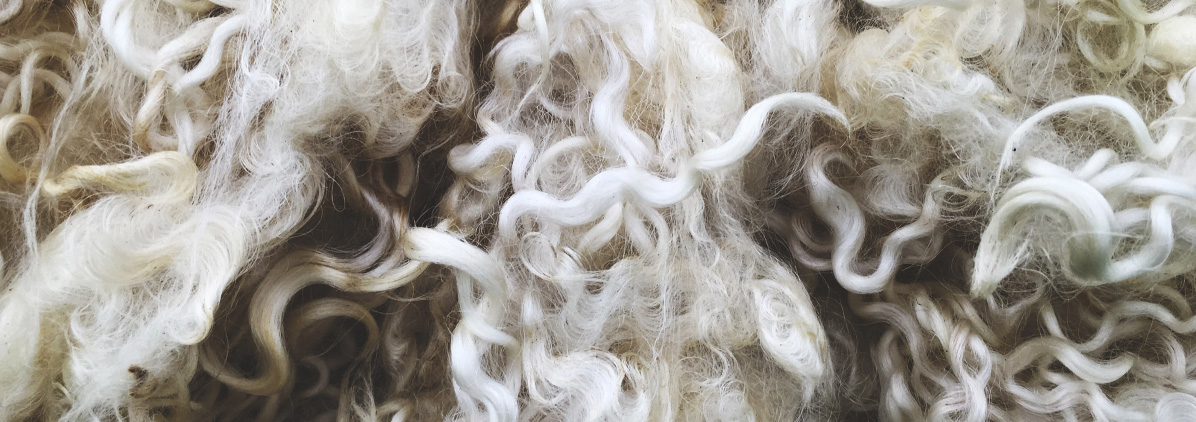
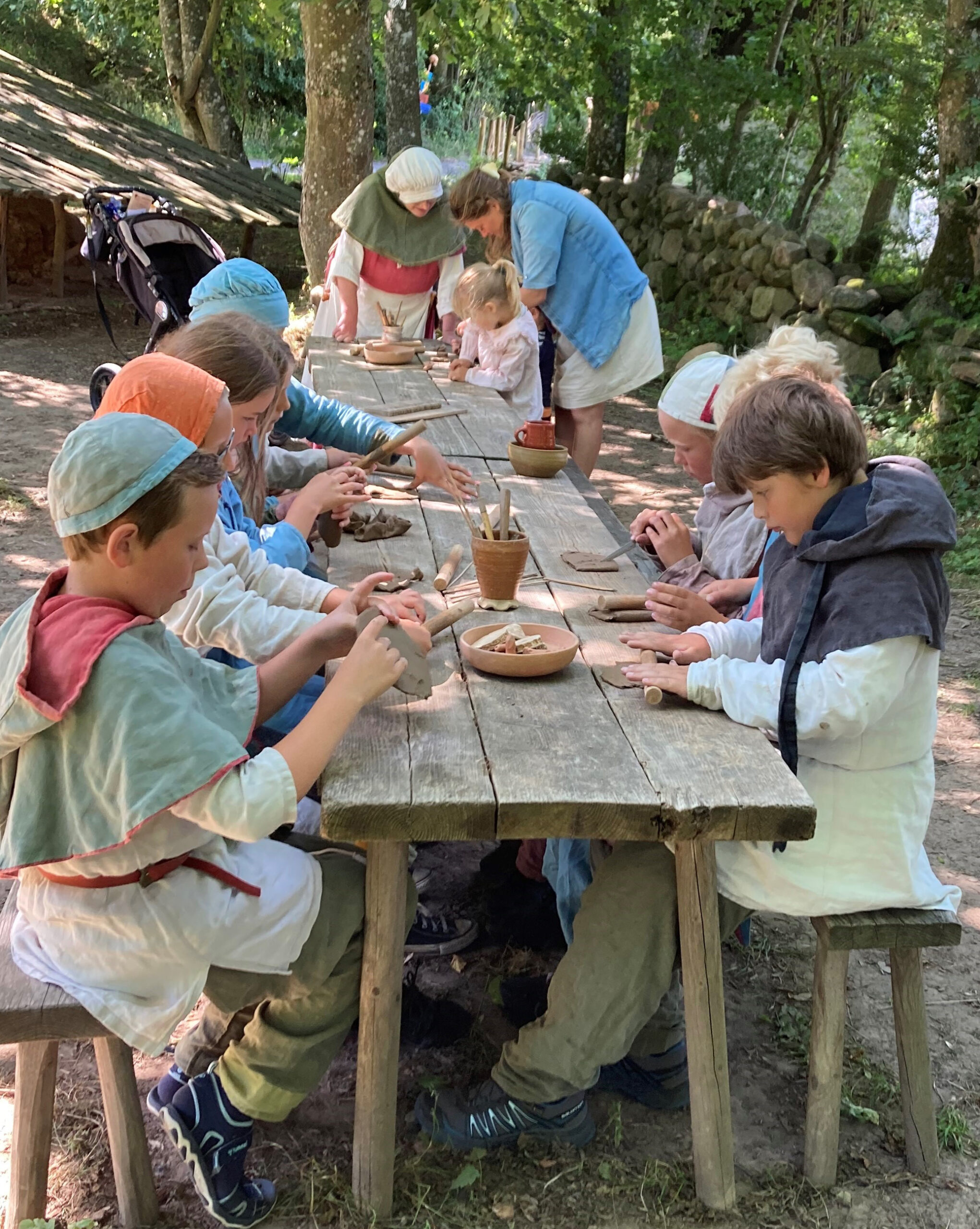
The Medieval Centre of Bornholm headed to develop their pottery workshops into a new era and widen their scope of participants. They want to develop and test concepts for workshops so that they better serve local children and teenagers.
”We wanted to lift our education on historical pottery and clay, so that it will benefit a larger group of local children and teenagers in the future, with special attention to the socially exposed groups. The main goal is to have our pottery activities work as a hub for medieval handicrafts, small-scale production of utensils from natural resources, story-telling, and local community building.”
Pilot Project Manager: Bornholms Middelaldercenter
The Bornholm Medieval Centre is an open-air museum situated on the island of Bornholm, Denmark. The museum area covers 15 hectares including several buildings and other constructions that invite visitors to explore the medieval ways of life on the island surrounded by the Baltic Sea. Started in 1996 as a social-economic enterprise, one part of the experimental approach to learning about medieval history is the pottery workshop where visitors can experiment through hands-on methods helped by the pottery instructor.
In the LIVIND pilot project the Bornholm Medieval Centre planned to address two topical issues concerning the pottery workshop. The first objective concerned the retiring of the pottery instructor and recruiting a new one. The centre wished to implement a stable generation shift so that existing knowledge, experience, and the general atmosphere of the pottery would be maintained. The second objective was to broaden the pottery activities with special attention on rendering the activities more inclusive for children who would have some special needs or who would come from socially exposed backgrounds. Run as a social-economic enterprise, the Medieval Centre engages many members of the local community also through voluntary work, and the atmosphere is welcoming for a diversity of visitors, participants, and other contributors.
The initial plan for the generation shift built on the idea of the retiring and the new pottery instructors to work side by side so that the experience and know-how about the workshop would be transferred to the newly starting member of the staff. However, due to several reasons, this scheme had to be replaced with an improvised plan during the pilot project implementation: instead of transferring information directly to the new instructor, other members of the centre’s education team decided to take up the role as intermediators. Considering the medieval centre’s daily practices, this also turned out to be the best solution.
The new knowledge transfer process led to four other educators at the centre to learn about pottery and to feel empowered to act as substitute pottery instructors when needed. This approach not only provided flexibility to the day-to-day activities but also facilitated the transmission of traditional knowledge held at the workshop through various mediums such as written documentation, teaching, videos, and photographs. For example, the leaving instructor handed in her written account about her general practice and tips and tricks for the pottery workshop.
The new pottery instructor, a young ceramist in education, came with already some experience in teaching and instructing pottery workshops and contributed with perspectives to improving the pottery while also willing to learn about medieval pottery practices and techniques. For example, the throwing wheel was moved to a location outside the potter’s house so that the activity is better displayed and inviting to the visitors. This directly created an active and engaged atmosphere at the potter’s house and added especially to children’s interest in learning about the heritage of traditional pottery. Recycling of the clay used in the pottery was improved and, in addition, ceramists on the Bornholm were contacted and found to be willing to help in the firing of ceramic objects created at the centre’s pottery workshop.
The medieval centre’s pottery already ran a daily workshop programme. With the pilot project the centre wished to broaden the programme so that more children also of socially exposed backgrounds and with special needs would have it easier to participate in the centre’s summer camps. It was agreed that the test camps would build on integration. For this end, the medieval centre cooperated with the local municipality and local schools. The new workshop activities were planned by the new pottery instructor and the centre’s education team who were further advised by the children’s communal contact persons and the participating local school classes’ teachers. For the test camps, the usual number of participants was reduced. Along these lines, there were run a series of regular summer daytime camps and, for school classes, 2-day workshop camps that included an overnight stay.
During the test camps it was found that children with special needs or socially exposed backgrounds were successfully integrated into pottery workshops and summer camps. Children overcame their usual challenges with remarkable ease and with enthusiasm. This was supported by the prevailing atmosphere of the medieval centre as a social-economic institution and the preparatory planning and discussions with the children’s contact persons and teachers. The results and the feedback from the children as well as from their parents, teachers and/or contact persons were encouraging to further develop the activities and to include the concept in the centre’s programme of activities.
With the two steps, the pilot project yielded several significant outcomes. Despite the timetable challenges, the well-organised generation transition at the pottery workshop was achieved. The change of plans to transfer pottery knowledge to the centre’s other educators added to their capacities so that now they can step in as substituting pottery instructors when needed. The newly recruited pottery instructor brought along new ideas and participated from the start in planning the new workshop and camp activities that supported the participation of children with special needs and vulnerabilities. In the planning process co-operation within the local community was strengthened with the municipality officials and with local schoolteachers. Collaboration with local ceramists was also strengthened, which also adds to the awareness about ceramic practices and heritage on the island.
Thematically, this pilot project especially focussed on social and cultural sustainability; to health and well-being, sustainable communities, and to continuity and knowledge transfer about use of clay and pottery techniques that have been carried over since the medieval times. In addition, the pilot project steered more attention on the ecological aspects related to pottery and ceramics in general, such as use of clay and use of energy in the firing process. The pilot project brought more focus on spreading knowledge about hand-building techniques and emphasising versatile approaches to craft that can inspire a broader audience. Notably, the project laid the groundwork for expanded pottery workshops, new activities, and continued inclusion of socially exposed children, enhancing opportunities for all involved.
The project contributes most of all to Sustainable Development Goals 3 (Good Health and Well-Being), 11 (Sustainable Cities and Communities), and 15 (Life on Land).
